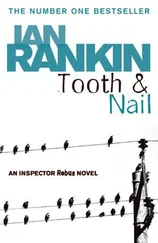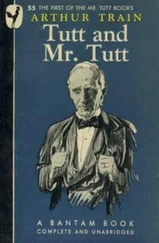And so the Singhs, though it revolted them, fed the girls on raw meat until the crisis had passed, and then they gave them broth, which the girls lapped from their bowls, and finally meat that had been at least partially cooked. As for clothing — clothing for decency’s sake — the girls rejected it as unnatural and confining, tearing any garment from their backs and limbs with their teeth, until Mrs. Singh hit on the idea of fashioning each of them a single tight-fitting strip of cloth they wore knotted round the waist and drawn up over their privates, a kind of diaper or loincloth they were forever soiling with their waste. It wasn’t an ideal solution, but the Singhs were patient — the girls had suffered a kind of deprivation no other humans had ever suffered — and they understood that the ascent to civilization and light would be steep and long.
When Amala died, shortly after the wolf pups succumbed to what the Reverend presumed was distemper communicated through the orphanage dogs, her sister wouldn’t let anyone approach the body. Looking back on it, the Reverend would see this as Kamala’s most human moment — she was grieving, grieving because she had a soul, because she’d been baptized before the Lord and was no wolfling or jungle bhut but a human child after all, and here was the proof of it. But poor Amala. Her, they hadn’t been able to save. Both girls had been dosed with sulfur powder, which caused them to expel a knot of roundworms up to six inches in length and as thick as the Reverend’s little finger, but the treatment was perhaps too harsh for the three-year-old, who was suffering from fever and dysentery at the same time. She’d seemed all right, feverish but calm, and Mrs. Singh had tended her through the afternoon and evening. But when the Reverend’s wife came into the pen in the morning, Kamala flew at her, raking her arms and legs and driving her back from the straw in which the cold body of her sister lay stretched out like a figure carved of wood. They restrained the girl and removed the corpse while Mrs. Singh retired to bandage her wounds and the Reverend locked the door of the pen to prevent any further violence. All that day Kamala lay immobile in the shadows at the back of the pen, wrapped in her own limbs. And then night fell, and she sat back on her haunches behind the rigid geometry of the bars and began to howl, softly at first, and then with increasing force and plangency until it was the very sound of desolation itself, rising up out of the compound to chase through the streets of the village and into the jungle beyond.
GOING TO THE DOGS
THE SKY WAS CLEAR all the way to the top of everything, the sun so thick in the trees he thought it would catch there and congeal among the motionless leaves. He didn’t know what prompted him to do it exactly, but as he came across the field he balanced first on one leg, and then the other, to remove his shoes and socks. The grass — the weeds, wildflowers, puffs of mushroom, clover, swaths of moss — felt clean and cool against the lazy progress of his bare feet. Butterflies shifted and flapped, grasshoppers shone gold, the false bees hung suspended from invisible wires. Things rose up to greet him, things and smells he’d forgotten all about, and he took his time among them, moving forward only to be distracted again and again. He found her finally in the tall nodding weeds that concealed the entrance of the den, playing with the puppies. He didn’t say hello, didn’t say anything — just settled in on the mound beside her and let the pups surge into his arms. The pack barely raised its collective head.
Her eyes came to him and went away again. She was smiling, a loose, private smile that curled the corners of her mouth and lifted up into the smooth soft terrain of the silken skin under her eyes. Her clothes barely covered her anymore, the turtleneck torn at the throat and sagging across one clavicle, the black jeans hacked off crudely — or maybe chewed off — at the peaks of her thighs. The sneakers were gone altogether, and he saw that the pale yellow soles of her feet were hard with callus, and her hair — her hair was struck with sun and shining with the natural oil of her scalp.
He’d come with the vague idea — or no, the very specific idea — of asking her for one of the pups, but now he didn’t know if that would do exactly. She would tell him that the pups weren’t hers to give, that they belonged to the pack, and though each of the pack’s members had a bed and a bowl of kibble awaiting it in one of the equitable houses of the alphabetical grid of the development springing up around them, they were free here, and the pups, at least, were slaves to no one. He felt the thrusting wet snouts of the creatures in his lap, the surge of their animacy, the softness of the stroked ears and the prick of the milk teeth, and he smelled them too, an authentic smell compounded of dirt, urine, saliva and something else also: the unalloyed sweetness of life. After a while, he removed his shirt, and so what if the pups carried it off like a prize? The sun blessed him. He loosened his belt, gave himself some breathing room. He looked at her, stretched out beside him, at the lean, tanned, running length of her, and he heard himself say, finally, “Nice day, isn’t it?”
“Don’t talk,” she said. “You’ll spoil it.”
“Right,” he said. “Right. You’re right.”
And then she rolled over, bare flesh from the worried waistband of her cutoffs to the dimple of her breastbone and her breasts caught somewhere in between, under the yielding fabric. She was warm, warm as a fresh-drawn bath, the touch of her communicating everything to him, and the smell of her too — he let his hand go up under the flap of material and roam over her breasts, and then he bent closer, sniffing.
Her eyes were fixed on his. She didn’t say anything, but a low throaty rumble escaped her throat.
WAITING FOR THE RAINS
THE REVEREND SINGH sat there on the veranda, waiting for the rains. He’d set his notebook aside, and now he leaned back in the wicker chair and pulled meditatively at his pipe. The children were at play in the courtyard, an array of flashing limbs and animated faces attended by their high, bright catcalls and shouts. The heat had loosened its grip ever so perceptibly, and they were all of them better for it. Except Kamala. She was indifferent. The chill of winter, the damp of the rains, the full merciless sway of the sun — it was all the same to her. His eyes came to rest on her where she lay across the courtyard in a stripe of sunlight, curled in the dirt with her knees drawn up beneath her and her chin resting atop the cradle of her crossed wrists. He watched her for a long while as she lay motionless there, no more aware of what she was than a dog or an ass, and he felt defeated, defeated and depressed. But then one of the children called out in a voice fluid with joy, a moment of triumph in a game among them, and the Reverend couldn’t help but shift his eyes and look.
What you hope for
Is that at some point of the pointless journey…
The kind assassin Sleep will draw a bead
And blow your brains out.
— RICHARD WILBUR
I WAS HAVING TROUBLE getting to sleep. Nothing serious, just the usual tossing and turning, the pillow converted to stone, every whisper of the night amplified to a shriek. I heard the refrigerator click on in the kitchen, the soft respiration of the dust-clogged motor that kept half a six-pack, last week’s take-out Chinese and the crusted jar of capers at a safe and comfortable temperature, and then I heard it click off. Every seven and a half minutes — I timed it by the glowing green face of the deep-sea diver’s watch my ex-wife gave me for Christmas last year — the neighbors’ dog let out a single startled yelp, and twenty seconds later I heard the car of some drunk or shift worker laboring up the hill with an intermittent wheeze and blast of exhaust (and couldn’t anybody in this neighborhood afford a new car — or at least a trip to the muffler shop?). It was three o’clock in the morning. Then it was four. I tried juggling invisible balls, repeating the names of my elementary school teachers, Mrs. Gold, Mrs. Cochrane, Miss Mandia, Miss Slivovitz, summoned their faces, the faces of as many of my classmates as I could remember, the faces of everybody in the neighborhood where I grew up, of everybody in New York, California, China, but it didn’t do any good. I fell asleep ten minutes before the alarm hammered me back to consciousness.
Читать дальше












